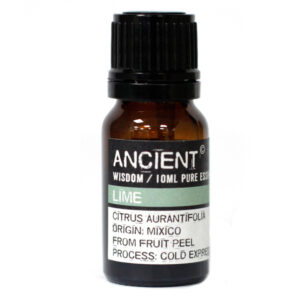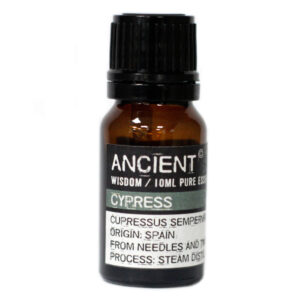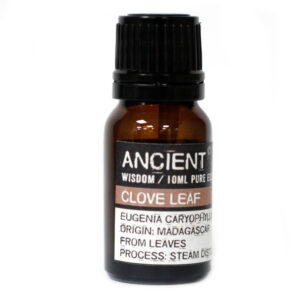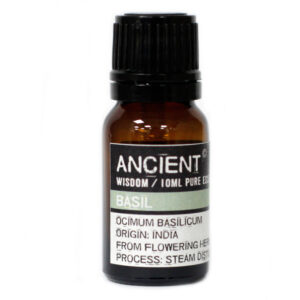
Description
The World of Aromatherapy’s Marjoram Essential Oil
🌿 Dive into the comforting embrace of our Marjoram Essential Oil, a fragrant testament to nature’s serene whispers.
🌳 Distilled from the lush marjoram plant, this oil paints an olfactory landscape filled with gentle herbal notes and a hint of warmth.
💆♂️ Revered in aromatherapy, Marjoram Essential Oil is synonymous with tranquillity. Its calming essence can ease tension, foster a peaceful sleep, and weave a comforting blanket over frayed nerves.
🌍 Nestled within our eco-conscious packaging, every drop of this oil resonates with our promise of purity and a steadfast commitment to honouring nature’s abundant gifts.
🌟 Allow our Marjoram Essential Oil to be your aromatic sanctuary, a place where stresses wane, and serenity blossoms.
Latin Name : Thymus Mastichina.
Part Of Plant Used : Leaves & Flowering Tops.
Source : Spain.
Extraction Method : Steam Distillation.
Additional information
| Weight | 0.04 kg |
|---|---|
| Size | 10ml, 50ml, 500ml |
You must be logged in to post a review.
Related Products
Related products
-

Lime Essential Oil
£3.50 – £75.00Price range: £3.50 through £75.00 Select options This product has multiple variants. The options may be chosen on the product page -

Cypress Essential Oil
£4.95 – £99.00Price range: £4.95 through £99.00 Select options This product has multiple variants. The options may be chosen on the product page -

Clove Leaf Essential Oil
£3.55 – £69.99Price range: £3.55 through £69.99 Select options This product has multiple variants. The options may be chosen on the product page -

Basil Essential Oil
£5.75 – £139.95Price range: £5.75 through £139.95 Select options This product has multiple variants. The options may be chosen on the product page
Marjoram Essential Oil: Benefits, Uses and Tips from The World of Aromatherapy
Marjoram essential oil is a highly concentrated source of health-promoting bioactive compounds. It is extracted from the perennial herb originating from the Mediterranean region. The oil has a warm, herbaceous, and woody aroma that makes it a popular choice in aromatherapy.
Marjoram essential oil has been used extensively in the ancient world to heal and disinfect. It has a long history of use in traditional medicine for its therapeutic properties. The oil is known to help relieve muscle spasm and pain, general aches, numbness, stiffness, menstrual problems, bruises, headache, indigestion, constipation, insomnia, stress-related conditions, and anxiety.
Key Takeaways
- Marjoram essential oil is a highly concentrated source of health-promoting bioactive compounds.
- The oil has a warm, herbaceous, and woody aroma that makes it a popular choice in aromatherapy.
- Marjoram essential oil has therapeutic properties that can help relieve various health conditions.
Overview of Marjoram Essential Oil
Marjoram essential oil is derived from the leaves of the marjoram plant, scientifically known as Origanum majorana. It belongs to the Lamiaceae family and is also known as sweet marjoram or Spanish marjoram. The plant is native to the Mediterranean region and has been used for medicinal purposes for centuries.
The oil is extracted through steam distillation of the flowering tops and leaves of the plant. The resulting oil is pale yellow in colour and has a warm, spicy, and herbaceous aroma. It is commonly used in aromatherapy and as a flavouring agent in the food industry.
Marjoram essential oil is known for its calming and soothing properties. It is believed to help relieve stress, anxiety, and nervous tension. It is also used to soothe sore muscles and joints, as well as to ease digestive issues such as bloating and constipation.
The oil contains various chemical compounds, including terpinen-4-ol, gamma-terpinene, and linalool. These compounds are responsible for its therapeutic properties and contribute to its unique aroma.
Overall, marjoram essential oil is a versatile and beneficial oil that can be used for a variety of purposes. Its warm and herbaceous aroma makes it a popular choice in aromatherapy, while its medicinal properties make it a valuable addition to any natural medicine cabinet.
Extraction and Characteristics
Marjoram essential oil is extracted from the leaves of the Origanum majorana plant. The leaves are thin and green, and the oil is steam distilled from them. The oil has a clear, thin consistency.
The essential oil of marjoram is composed of various chemical compounds, including terpinene-4-ol, γ-terpinene, sabinene hydrate, and linalool. These compounds give the oil its characteristic aroma and therapeutic properties.
Marjoram essential oil is known for its calming and soothing effects on the body and mind. It is often used in aromatherapy to relieve stress, anxiety, and insomnia. The oil also has antispasmodic properties, making it useful for relieving muscle cramps and menstrual pain.
When purchasing marjoram essential oil, it is important to ensure that the oil is pure and of high quality. Adulterated oils may contain synthetic compounds that can be harmful to the body. It is recommended to purchase oils from reputable suppliers who provide information about the oil’s source and extraction method.
Overall, marjoram essential oil is a versatile and beneficial oil that can be used for a variety of purposes. Its calming and soothing effects make it a popular choice for aromatherapy, while its antispasmodic properties make it useful for relieving muscle pain and cramps.
Aromatic Profile
Marjoram essential oil has a warm, herbaceous aroma with sweet and spicy undertones. Its fragrance is reminiscent of thyme and is often described as being slightly medicinal. The aroma is not overpowering, making it a popular choice for blending with other essential oils.
The essential oil is extracted from the leaves and flowers of the marjoram plant, which is a member of the mint family. The oil is pale yellow to amber in colour and has a thin consistency.
Marjoram essential oil is considered to be herbaceous, which means it has a strong, plant-like aroma. This makes it an excellent choice for use in aromatherapy, as it can help to promote feelings of relaxation and calm.
The sweet and spicy notes in marjoram essential oil also make it a popular choice for use in cooking. It can be used to add flavour to a wide range of dishes, including soups, stews, and sauces.
Overall, marjoram essential oil has a complex and versatile aroma that makes it a popular choice for a wide range of applications. Its fragrance is both comforting and invigorating, making it a great choice for use in aromatherapy, cooking, and more.
Historical and Cultural Significance
Marjoram essential oil has a long history of use dating back to ancient times. The herb was highly valued by the Greeks, who believed it to be a symbol of happiness. They used it to make garlands and wreaths, and also added it to their food as a flavouring agent.
In ancient Egypt, marjoram was considered to be a sacred herb and was dedicated to Osiris, the god of the underworld. It was also used in the embalming process and placed in the tombs of pharaohs. As a result, marjoram was known as the “funeral herb”.
During the Middle Ages, marjoram was used for its medicinal properties. It was believed to have the ability to cure a variety of ailments, including digestive problems, headaches, and insomnia. It was also used as a natural remedy for coughs and colds.
Marjoram was often used to make garlands and wreaths during the Middle Ages. It was believed that wearing a marjoram garland would protect a person from evil spirits and promote good health.
In addition to its medicinal properties, marjoram was also used in cooking. It was added to soups, stews, and meat dishes to enhance their flavour. Today, it is still used in the culinary world as a seasoning.
In conclusion, marjoram essential oil has a rich history and cultural significance. It has been used for centuries for its medicinal properties, as well as its culinary uses. Its use in ancient times is a testament to its effectiveness and importance in traditional medicine.
Therapeutic Properties and Uses
Marjoram essential oil is known for its therapeutic properties and is widely used in aromatherapy. The oil is extracted from the leaves of the marjoram plant, which is native to the Mediterranean region. Marjoram essential oil is rich in terpinen-4-ol, a compound known for its anti-inflammatory effects.
The oil is a popular choice for massage and pain relief due to its warming and comforting properties. It is also used to relax muscles and relieve stress, aches, and headaches. Marjoram essential oil is an effective muscle relaxant and is often used to treat muscle spasms and stiffness.
The oil is also known for its ability to calm the nervous system and alleviate anxiety and irritability. It is often used to treat grief, loneliness, and other emotional issues. Marjoram essential oil is also a popular remedy for menstrual problems, such as PMS and cramps, as it is an emmenagogue and can stimulate breast milk production.
Marjoram essential oil is also used to treat digestive issues, such as indigestion and constipation. It can also help to prevent coughs and colds due to its anti-inflammatory and anti-viral properties. The oil is also known to have gastroprotective effects, which can prevent digestive issues and bloating.
It is important to note that marjoram essential oil should be used with caution, as it can cause skin irritation and should not be used during pregnancy. Overall, marjoram essential oil is a versatile oil with many therapeutic properties that can be used to treat a variety of ailments.
Usage in Aromatherapy
Marjoram essential oil is a popular choice in aromatherapy due to its many benefits. It has a warm, spicy, and herbaceous aroma that is both relaxing and uplifting. The oil is extracted from the flowers and leaves of the marjoram plant, which is native to the Mediterranean region.
One of the most common ways to use marjoram essential oil in aromatherapy is through diffusion. The oil can be added to a diffuser or oil burner to fill the room with its aroma. This can help to promote relaxation, reduce stress and anxiety, and improve overall mood. Marjoram essential oil can also be blended with other oils such as lavender, bergamot, or chamomile to create a customised aroma that meets individual needs.
In addition to diffusion, marjoram essential oil can also be used topically. When diluted with a carrier oil such as coconut or jojoba oil, it can be applied to the skin to help relieve muscle pain, cramps, and stiffness. It can also be used to treat menstrual cramps and digestive issues.
When using marjoram essential oil in aromatherapy, it is important to use a high-quality, pure oil. This will ensure that the oil is effective and safe to use. It is also important to follow proper dilution guidelines and to test the oil on a small patch of skin before using it more widely.
Overall, marjoram essential oil is a versatile and beneficial oil that can be used in a variety of ways in aromatherapy. Whether diffused or applied topically, it can help to promote relaxation, reduce stress, and improve overall well-being.
Blending with Other Essential Oils
Marjoram essential oil is a versatile oil that blends well with a variety of other essential oils. When blended with other oils, it can enhance their therapeutic properties and create unique aromas. Here are some essential oils that Marjoram blends well with:
- Lavender: Marjoram and Lavender are both calming oils that can help reduce stress and promote relaxation. Together, they create a soothing and peaceful atmosphere.
- Rose: Marjoram and Rose are both floral oils that can help uplift the mood and promote feelings of joy and happiness. Together, they create a sweet and romantic aroma.
- Rosemary: Marjoram and Rosemary are both warming oils that can help stimulate circulation and relieve muscle pain. Together, they create a powerful blend that can help ease sore muscles and joints.
- Oregano: Marjoram and Oregano are both spicy oils that can help boost the immune system and fight off infections. Together, they create a potent blend that can help protect the body against harmful pathogens.
- Thyme: Marjoram and Thyme are both herbaceous oils that can help improve respiratory function and ease coughs and congestion. Together, they create a refreshing and invigorating aroma that can help clear the airways.
When blending Marjoram with other essential oils, it is important to use high-quality, pure oils to ensure maximum therapeutic benefits. It is also important to dilute the oils properly and perform a skin patch test before using them topically.
Overall, Marjoram is a versatile oil that can be blended with a variety of other oils to create unique aromas and enhance their therapeutic properties. Whether you are looking to promote relaxation, relieve muscle pain, boost immunity, or improve respiratory function, Marjoram can be a valuable addition to your aromatherapy toolkit.
Safety and Precautions
Marjoram Essential Oil is generally safe for use, but it is important to take certain precautions to avoid any potential adverse effects. Here are some important safety considerations to keep in mind when using Marjoram Essential Oil:
- Dilute Marjoram Essential Oil before use: It is important to always dilute Marjoram Essential Oil before using it topically. Undiluted essential oils can be extremely potent and may cause skin irritation or other adverse reactions. A suitable carrier oil such as coconut oil, jojoba oil, or sweet almond oil can be used to dilute the essential oil.
- Skin sensitivity: Always perform a patch test before using Marjoram Essential Oil topically. Apply a small amount of diluted oil to a small area of skin and wait for 24 hours to see if there is any reaction. If there is any redness, itching or irritation, discontinue use immediately.
- Safety for children: Marjoram Essential Oil should not be used on infants or children under the age of 3 years. For older children, the oil should be used with caution and in very low dilutions.
- Avoid contact with eyes and mucous membranes: Marjoram Essential Oil should not be applied near the eyes or mucous membranes. If accidental contact occurs, flush the area with cool water immediately.
- Internal use: Marjoram Essential Oil should not be taken internally without the guidance of a qualified aromatherapist or healthcare professional.
- Pregnancy and breastfeeding: Marjoram Essential Oil should be avoided during pregnancy and breastfeeding.
It is always important to use essential oils with care and caution. If you experience any adverse reactions or have any concerns about using Marjoram Essential Oil, consult a qualified aromatherapist or healthcare professional.
Role in Cardiovascular System
Marjoram Essential Oil has been shown to have a positive impact on the cardiovascular system. Studies have found that the inhalation of Marjoram Essential Oil can calm the nervous system, which in turn can improve blood flow and lower blood pressure.
Marjoram Essential Oil contains compounds that have been shown to have vasodilating effects, meaning they can widen blood vessels and improve blood flow. This can be particularly beneficial for individuals with cardiovascular disease, as it can help to improve circulation and reduce the risk of complications such as heart attacks and strokes.
In addition to its effects on blood flow, Marjoram Essential Oil has also been shown to have a calming effect on the nervous system. This can be particularly beneficial for individuals with hypertension, as stress and anxiety can contribute to high blood pressure. By promoting relaxation and reducing stress levels, Marjoram Essential Oil may help to lower blood pressure and reduce the risk of cardiovascular disease.
Overall, while more research is needed to fully understand the effects of Marjoram Essential Oil on the cardiovascular system, current evidence suggests that it may have a beneficial impact on blood pressure and blood flow. As with any essential oil, it is important to use Marjoram Essential Oil safely and under the guidance of a qualified aromatherapist or healthcare professional.
Influence on Mental Well-being
Marjoram essential oil has been used for centuries to promote mental well-being. Its warm and comforting aroma has a calming effect on the mind and helps to reduce stress and anxiety. The oil has been found to be particularly effective in promoting relaxation and reducing tension, making it an ideal choice for those who suffer from depression.
Marjoram essential oil is known for its soothing and calming properties, which make it an excellent choice for use in aromatherapy. It is believed that the oil works by stimulating the middle part of the brain, which is responsible for regulating emotions and mood. This helps to promote a sense of calm and relaxation, which can be particularly helpful for those who suffer from depression.
In addition to its calming properties, marjoram essential oil is also believed to have a positive effect on the mind. It is thought to help improve concentration and focus, making it an excellent choice for use during times of stress or when studying. The oil has also been found to have a positive effect on memory, which can be particularly beneficial for older adults.
Marjoram essential oil can be used in a variety of ways to promote mental well-being. It can be diffused in the air, added to a warm bath, or used in massage to help promote relaxation and reduce stress. It can also be added to a carrier oil and applied topically to the temples or wrists to help promote a sense of calm and relaxation.
Overall, marjoram essential oil is an excellent choice for those looking to promote mental well-being. Its calming and soothing properties make it an ideal choice for use in aromatherapy, and it has been found to be particularly effective in reducing stress and anxiety. Whether diffused, added to a bath, or used in massage, marjoram essential oil is a versatile and effective tool for promoting mental well-being.
Usage in Culinary World
Marjoram essential oil is a popular herb in the culinary world, known for its unique flavour and aroma. It is often used as a spice in stews, soups, dressings, and meat dishes. The herb has a slightly sweet and spicy taste, making it an excellent addition to various recipes.
Marjoram is also used in herbal teas, providing a soothing and calming effect. The herb can be brewed alone or mixed with other herbs such as chamomile, lavender, or lemon balm. The tea is perfect for relaxation and can be consumed before bedtime to promote a good night’s sleep.
When cooking with marjoram essential oil, it is essential to use it sparingly, as the oil is potent and can quickly overpower the dish’s flavour. A few drops of the oil are enough to add a delightful taste to your recipe. It is also important to note that marjoram essential oil should not be used in place of dried or fresh marjoram, as the flavour and aroma are different.
In summary, marjoram essential oil is a versatile ingredient in the culinary world, providing a unique flavour and aroma to various dishes. It is also an excellent addition to herbal teas, promoting relaxation and calmness. However, it should be used sparingly to avoid overpowering the dish’s flavour, and it should not be used as a substitute for dried or fresh marjoram.
Commercial Availability and Buying Tips
Marjoram essential oil is widely available in the market, both online and offline. It is essential to purchase the oil from a reputable and trusted source to ensure quality and authenticity. Here are some buying tips to keep in mind:
- Look for 100% pure and natural marjoram essential oil. Avoid products that contain synthetic fragrances or additives.
- Check the label for the botanical name of the oil, which should be either Origanum majorana or Thymus mastichina. This helps ensure that you are getting the right type of marjoram oil.
- Choose a brand that uses steam distillation to extract the oil from the plant. This method ensures that the oil retains its natural properties and aroma.
- Consider purchasing from brands that source their marjoram oil from organic and sustainable farms.
- Always check the expiration date and storage instructions before making a purchase.
Marjoram essential oil is often used in aromatherapy, massage, and skincare products. It can be blended with carrier oils such as coconut, almond, or jojoba oil for topical application. When using the oil, it is recommended to dilute it with a carrier oil to avoid skin irritation.
In addition to its use in aromatherapy, marjoram oil is also a popular ingredient in chest rubs and balms. It is believed to help relieve coughs, congestion, and other respiratory issues. When using marjoram oil for this purpose, it is advisable to follow the instructions on the product label or consult a healthcare professional.
Overall, marjoram essential oil is a versatile and beneficial oil that can be easily incorporated into your daily routine. By following these buying tips and using the oil safely and responsibly, you can enjoy its many benefits.

















Reviews
There are no reviews yet.